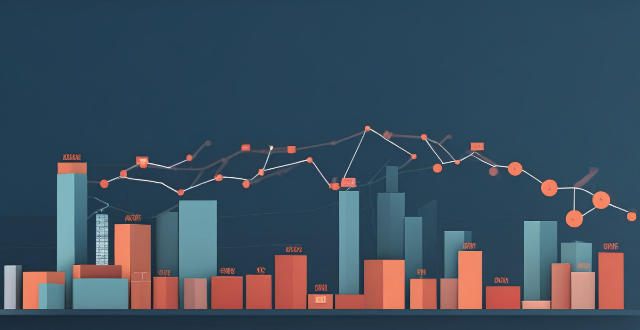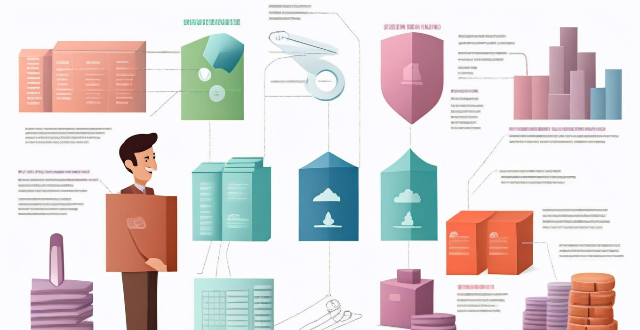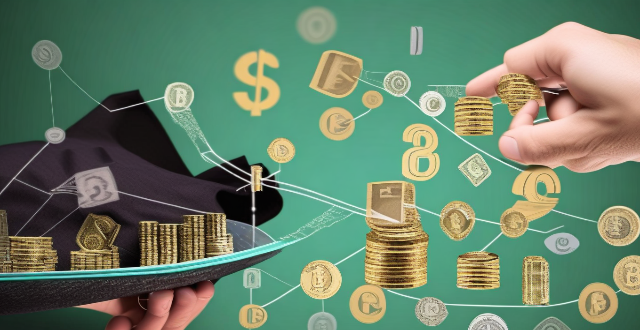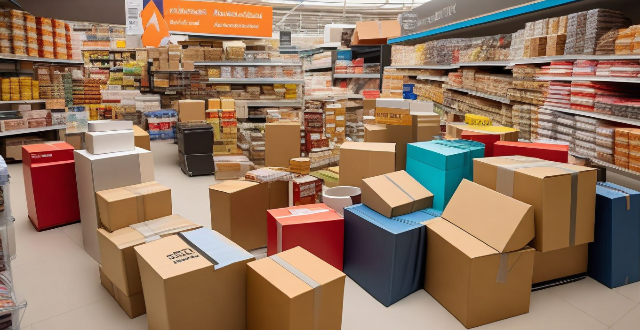Country Currency

What should I do with leftover currency from my travels ?
When you return from a trip, you may find yourself with some leftover currency from the country you visited. Here are some options for what to do with it: keep it for future trips, exchange it back to your home currency, use it for online purchases, give it as a gift or souvenir, or donate it to charity. Consider your personal preferences and circumstances when deciding which option is best for you.

What is the best way to exchange currency ?
Exchanging currency is a common practice for travelers, businessmen, and investors. However, the process can be confusing and costly if not done correctly. In this article, we will discuss the best ways to exchange currency while minimizing fees and maximizing convenience. Understanding Currency Exchange Rates: Before diving into the best ways to exchange currency, it's essential to understand what affects currency exchange rates. These rates are influenced by various factors such as economic indicators, political stability, and market speculation. To get the best rate possible, keep an eye on these factors and plan your exchange accordingly. Researching Exchange Options: One of the most common ways to exchange currency is through banks and credit unions. While convenient, these institutions often have high fees and unfavorable exchange rates. It's important to compare rates and fees before choosing this option. Currency exchange offices are another popular choice for exchanging currency. They typically offer better rates than banks but may still charge high fees. It's crucial to research each office's policies and rates before making a transaction. Using an ATM to withdraw foreign currency can be a cost-effective option, especially for small amounts. However, be aware of any additional fees charged by your bank or the ATM operator. Prepaid currency cards allow you to load multiple currencies onto one card, making them a convenient option for travelers. They usually offer competitive exchange rates and low fees, but it's important to read the terms and conditions carefully. Online currency exchange services provide an easy and efficient way to exchange currency. They often offer competitive rates and low fees, but it's essential to research each service thoroughly before using them. Choosing the Best Option: The best way to exchange currency depends on several factors, including the amount of money being exchanged, the destination country, and personal preferences. Here are some general tips to help you choose the best option: Compare rates and fees: Always compare rates and fees across different options before making a decision. This will help you find the most cost-effective solution. Consider convenience: If you need access to cash quickly or frequently, consider using an ATM or prepaid currency card. These options allow you to withdraw money easily while traveling. Plan ahead: Don't wait until the last minute to exchange currency. Plan ahead and research your options to ensure you get the best rate possible. Be aware of scams: Unfortunately, there are many scams associated with currency exchange. Be wary of street vendors offering exceptionally good rates or other suspicious activities. Stick to reputable institutions and services to avoid potential fraud.

Can I exchange currency online ?
You can exchange currency online through banks, currency exchangeYou can exchange currency online through banks, currency exchange-peer platforms, mobile currency exchange websites, peer-to-peer platforms, mobile apps, and cryptocurrency exchanges. Each option has its own advantages and disadvantages in terms of convenience, fees, and exchange rates. It's important to research and compare different options to find the one that best suits your needs.

How do economic indicators influence currency exchange rates ?
Economic indicators significantly influence currency exchange rates by reflecting the health and performance of an economy, affecting demand for its currency. Key indicators include Gross Domestic Product (GDP), interest rates, inflation rates, trade balance, political stability, employment data, and consumer confidence. A strong economy typically leads to an appreciation of its currency, while a weaker economy can result in depreciation. These indicators are closely monitored by investors and traders to make informed decisions about buying or selling currencies.

What are the most common scams in currency exchange ?
The most common scams in currency exchange include high fees and hidden charges, unfavorable exchange rates, phishing scams, and fake currency. To avoid these scams, it is important to read the fine print before agreeing to any transaction or service, check the current exchange rate before making a transaction, never give out personal information unless you are sure you are dealing with a legitimate source, and always inspect currency carefully before accepting it.

Can I use my credit card for currency exchange ?
Using a credit card for currency exchange is convenient but comes with potential fees and less favorable exchange rates. It involves dynamic currency conversion by your bank or credit card issuer, which may add a spread or margin to the rate. To use your credit card for currency exchange, ensure it's eligible for international use, notify your bank of travel plans, understand associated fees, choose to pay in local currency, and monitor transactions. While offering convenience and security, drawbacks include fees, potentially unfavorable rates, and the need to manage credit limits. Comparing cards based on fees and rewards can optimize benefits.

Should I use a bank or a currency exchange service ?
When it comes to exchanging currencies, you have two main options: banks and currency exchange services. Both have their advantages and disadvantages, so it's important to consider your specific needs before making a decision. Advantages of Using a Bank: - Security: Banks are generally considered more secure than currency exchange services because they are regulated by government agencies. Your money is protected by insurance policies, such as the Federal Deposit Insurance Corporation (FDIC) in the United States. - Convenience: Many banks offer online and mobile banking services, allowing you to easily manage your account and make transactions from anywhere. You can also withdraw cash from ATMs worldwide without additional fees. - Fees: Banks typically charge lower fees for currency exchange compared to currency exchange services. Some banks even offer fee-free currency exchange if you have an account with them. Advantages of Using a Currency Exchange Service: - Better Exchange Rates: Currency exchange services often offer better exchange rates than banks because they specialize in foreign currency exchange. This means you can get more money for your currency than if you were to use a bank. - No Fees: Many currency exchange services do not charge any fees for exchanging currencies. However, some may still charge a small commission or service fee. - Speed: Currency exchange services are usually faster than banks when it comes to exchanging currencies. They often have shorter processing times and can provide you with the currency you need quickly. Disadvantages of Using a Bank: - Limited Availability: Not all banks offer foreign currency exchange services, especially smaller local banks. You may need to visit multiple banks to find one that offers this service. - Higher Fees: As mentioned earlier, banks typically charge higher fees for currency exchange compared to currency exchange services. This can add up quickly if you need to exchange large amounts of currency. Disadvantages of Using a Currency Exchange Service: - Security Risks: Currency exchange services are not regulated by government agencies like banks are. This means there is a higher risk of fraud or theft when using these services. - Limited Locations: Currency exchange services may not be available in all locations, especially in rural areas or smaller towns. You may need to travel to a larger city or airport to find one. - Limited Services: Currency exchange services typically only offer foreign currency exchange and do not provide other banking services like checking accounts or loans. If you need additional financial services, you will need to use a separate bank.

Is it better to exchange currency before or after arriving at my destination ?
Exchanging currency is an important aspect of international travel. Depending on your travel plans, it may be more advantageous to exchange currency before or after arriving at your destination. Here are some factors to consider: ## Pros of exchanging currency before arrival: - Convenience - Better rates - Security ## Cons of exchanging currency before arrival: - Higher fees - Risk of loss/theft - Limited flexibility ## Pros of exchanging currency after arrival: - Better rates - More options - Flexibility ## Cons of exchanging currency after arrival: - Time constraints - Lack of availability - Language barriers In conclusion, whether it's better to exchange currency before or after arriving at your destination depends on various factors such as convenience, safety, and cost. It's essential to weigh these factors carefully and choose the option that best suits your needs and travel plans.

What happens if I don't declare all the cash I'm carrying when entering a country ?
The text provides a comprehensive overview of the potential penalties and inconveniences that may arise from not declaring cash at customs when entering a country. These include fines, seizure of funds, travel restrictions, administrative inconvenience, and loss of face. To avoid these consequences, it is recommended to be honest about the amount of cash carried, keep receipts, research regulations, and consult professionals if necessary.

What are the economic implications of pursuing carbon neutrality for a country ?
Pursuing carbon neutrality has both positive and negative economic implications for a country, including job creation, innovation, energy independence, short-term costs, impacts on traditional industries, and potential carbon leakage.

What is Cross-Border Payment ?
Cross-border payment is the process of transferring money from one country to another, involving currency exchange and various payment methods. It is essential for businesses operating in multiple countries, allowing them to receive and make payments in different currencies. Key features include currency exchange, payment methods, regulations, fees, and timeframes. Benefits of cross-border payments include global expansion, increased sales, reduced costs, and improved cash flow.
![What are some must-try dishes in [insert city/country] ?](/imgs/2f8b31ee-f62a-46e3-8828-37a4af062f9b.png)
What are some must-try dishes in [insert city/country] ?
Must-Try Dishes in [Insert City/Country]: A Culinary Journey When exploring the culinary delights of a new city or country, it's always exciting to try local dishes that showcase the unique flavors and ingredients of the region. In this article, we will delve into some must-try dishes in [insert city/country]. The first dish on our list is [dish name], known for its rich and flavorful taste. It typically consists of [ingredients/preparation method] and is a perfect representation of the local cuisine, offering a blend of traditional spices and fresh ingredients. Next up is the popular dish [dish name], made with [ingredients/preparation method]. This dish is not only delicious but also visually appealing, making it a feast for both your taste buds and eyes. Another unique dish found in [insert city/country] is [dish name], characterized by its [ingredients/preparation method]. This dish offers a unique twist on traditional [insert city/country] cuisine, combining familiar flavors with unexpected ingredients. Last but not least is the beloved dish [dish name], featuring [ingredients/preparation method]. This dish is a true representation of [insert city/country]'s street food culture, offering a quick and tasty snack for locals and tourists alike. In conclusion, [insert city/country] offers a wide variety of must-try dishes that cater to different tastes and preferences. From traditional staples to unique twists on classic recipes, there's something for everyone to enjoy. So next time you find yourself in [insert city/country], be sure to give these dishes a try!

In what ways do immigration policies affect the cultural diversity of a country ?
Immigration policies play a significant role in shaping the cultural diversity of a country. Policies that promote multiculturalism, facilitate family reunification, and provide opportunities for legal migration can enhance cultural diversity. In contrast, strict immigration controls, deportation policies, and anti-immigrant sentiments can hinder it.

How long does it typically take to receive a tax refund after leaving a country ?
Leaving a country can be a stressful process, and one of the concerns that many expatriates have is how long it will take to receive their tax refund. The answer to this question depends on several factors, including the country you are leaving, your residency status, the method of application, and the time of year. By following best practices such as filing electronically, providing complete information, following up with tax authorities, and considering professional help, you can help speed up the process and receive your refund more quickly.

Do I need a visa if I'm only staying in the country for a few hours ?
Do I Need a Visa If I'm Only Staying in the Country for a Few Hours? Traveling to a foreign country often involves understanding the visa requirements, even if your stay is only for a few hours. The need for a visa depends on factors such as the purpose of your visit, the duration of your stay, and the specific regulations of the country you are visiting. Some countries offer visa exemptions for brief transit stays, especially if you remain in the airport and do not enter the country's territory. For business meetings or other activities that require leaving the airport, a visa may be necessary regardless of the duration. Countries often have specific rules for visits shorter than 24 hours or even up to 90 days, which may affect visa requirements. Generally, if your stay exceeds the short-term visit limit, a visa will be required. Some countries have agreements that allow citizens of certain nations to enter without a visa for short periods. For layovers or connecting flights, some countries issue transit visas that allow limited time within the country or its airports. To determine visa requirements, research the country's visa policy, consult with the airline, check travel advisories, and contact the embassy directly if unsure. Whether you need a visa for a short stay largely depends on the country's immigration policies and the purpose of your visit. It is essential to research and understand these requirements before traveling to avoid any complications at border control.

What documents do I need to exchange currency ?
Exchanging currency at Bank of China or any other financial institution requires presenting valid personal identification documents and relevant materials proving the necessity for the exchange, including proof of need and a usage declaration. The process adheres to specific regulations set by the State Administration of Foreign Exchange, such as annual total amount management and verification and approval procedures. It is crucial to understand these requirements and check with your bank beforehand to ensure a smooth currency exchange experience.

How can I ensure I get the best exchange rate ?
When exchanging currencies, it is important to ensure that you get the best possible exchange rate. This can help you save money and get the most value for your money. In this guide, we will discuss some tips and strategies that can help you achieve the best exchange rate possible. The first step in ensuring the best exchange rate is to research the current exchange rates online. There are many websites that provide real-time information on exchange rates, such as XE.com or OANDA. By checking these sites, you can get an idea of what the current exchange rate is and compare it to other providers. Once you have an idea of the current exchange rate, it's time to compare different providers. Look for banks, currency exchange offices, and even online services that offer competitive rates. Make a list of potential providers and compare their rates side by side. Using a credit card that doesn't charge foreign transaction fees can be a great way to get the best exchange rate. Some credit cards also offer rewards programs that give you cashback or points for using your card abroad. Look for cards that offer these benefits and make sure they don't charge any additional fees for foreign transactions. Prepaid currency cards are another option to consider when traveling abroad. These cards allow you to load them with foreign currency before your trip and use them like a debit card. They often come with lower fees than traditional bank accounts and may offer better exchange rates than exchanging cash at a currency exchange office. If you prefer to exchange cash, shop around at local currency exchange offices to find the best rates. Don't be afraid to walk away from an office if you feel like the rate they're offering isn't fair. Often, just by showing that you're willing to walk away, they may offer you a better rate. Getting the best exchange rate requires some research and planning ahead of time. By following these tips and strategies, you can ensure that you get the most value for your money when exchanging currencies.

How do I avoid high fees when exchanging money ?
Exchanging money can be costly, but there are ways to avoid high fees. Use your bank or credit card for transactions, consider a prepaid travel card, look for no-fee ATMs, use online currency exchange services, and negotiate with local currency exchange offices. By being aware of your options and doing research ahead of time, you can save money and make your travels more enjoyable.

How can one save money while shopping globally ?
Shopping globally can be an exciting experience, but it can also be costly. Here are some tips on how to save money while shopping internationally: 1. Research the best deals by comparing prices, checking for discounts and coupons, and signing up for newsletters from favorite retailers. 2. Consider shipping costs by looking for retailers that offer free or flat rate shipping and group shipping with friends or family members who live in the same country. 3. Use currency exchange services to compare rates and avoid airport exchange desks, and consider prepaid cards to load money onto a card in your home currency and use it abroad without incurring additional fees. 4. Be aware of taxes and duties by understanding tax regulations of the country you are shopping in, checking for tax-free options for tourists, and calculating duty fees before making a purchase. 5. Shop locally when possible by supporting small businesses, looking for handmade items, and bargaining with street vendors in countries where it is common practice.

What do I need to know about VAT refunds when traveling internationally ?
VAT (Value Added Tax) is a consumption tax applied on products or services purchased within a country. International travelers may be eligible for a VAT refund if they purchase goods to take out of the country where they made the purchase, often referred to as "tax-free shopping". To get a VAT refund, travelers must check eligibility, get tax-free forms, keep receipts, procure documents from customs, claim their refund, and be aware of time limits, minimum purchase amounts, fees, and currency conversion. Tips for successful VAT refunds include planning ahead, consolidating purchases, tracking deadlines, verifying retailer participation, and consulting with experts. By understanding the VAT system and following these guidelines, international travelers can potentially save money on their shopping experiences.

What are the potential risks involved in global shopping ?
Global shopping has become increasingly popular in recent years, but it comes with potential risks such as customs duties and taxes, longer shipping times and higher costs, quality assurance and product safety concerns, language barriers and customer service challenges, and currency exchange rate fluctuations. To mitigate these risks, consumers should research customs policies, choose reputable sellers, read product reviews, check return policies, consider insurance options, plan ahead for shipping times, monitor exchange rates, and use secure payment methods. By following these tips, consumers can enjoy a safe and satisfying global shopping experience.

Is it worth buying electronics at duty-free shops ?
When considering buying electronics at duty-free shops, one must weigh the pros and cons. Tax benefits can save money, but price comparison is crucial to ensure real savings. Product availability may be limited, and warranty and support validity in your home country should be checked. Return policies are stricter, and additional costs like baggage fees and customs charges may apply. Convenience is a significant advantage for immediate needs, but currency exchange rates can impact savings. Evaluate all these factors before deciding to buy.

What currencies can be used for Cross-Border Payment ?
The currencies used for cross-border payments vary widely depending on numerous factors, including economic strength, political stability, and market acceptance. Major world currencies like the US Dollar, Euro, British Pound Sterling, and Japanese Yen are commonly used due to their global acceptance and role in international trade and financial markets. Other currencies such as the Chinese Yuan/Renminbi, Canadian Dollar, and Australian Dollar also play significant roles in cross-border payments, particularly in commodities trade and regional economies. Digital currencies, including Bitcoin and stablecoins, are increasingly being used for cross-border payments, offering decentralized transactions and the benefits of blockchain technology. Factors influencing currency choice include regulatory environment, cost considerations, market fluctuations, and business agreements.

How does the pricing work in duty-free shops compared to regular retail stores ?
This article compares the pricing mechanisms of duty-free shops and regular retail stores, highlighting their differences and factors that influence pricing strategies. Duty-free shops offer lower prices due to tax and duty exemptions, currency exchange rates, volume discounts, and limited product ranges. In contrast, regular retail stores are subject to local taxes and duties, operate in highly competitive markets, offer promotions and discounts, and have a wider product range. The decision to shop at duty-free shops or regular retail stores depends on individual preferences, budget constraints, and the availability of desired products.

Is Cross-Border Payment secure ?
Cross-border payments are essential for international trade and business transactions but can pose security risks. Factors like regulatory compliance, technology, fraud prevention measures, and the reputation of the payment service provider affect the security of these payments. Risks include currency fluctuations, political instability, and cyber threats. To ensure security, choose a reputable provider, use secure payment methods, verify recipient details, and keep track of transactions.

How do competitive sports contribute to the growth of a country's economy ?
Competitive sports significantly contribute to a country's economic growth by boosting tourism, creating jobs, generating media and advertising revenue, diversifying the economy, improving social welfare, enhancing urban development, and attracting foreign investments. Major sporting events not only provide temporary employment but also stimulate long-term infrastructure development and technology innovation. Moreover, they foster national unity and health benefits, indirectly contributing to economic stability. Overall, competitive sports are instrumental in showcasing a country's potential on a global scale, leading to numerous economic advantages.

What are the benefits of shopping at duty-free stores ?
Shopping at duty-free stores offers benefits including tax-free shopping, exclusive products, deals and discounts, convenient access, global brands, gift options, quality assurance, and currency exchange.
![Are there any travel warnings or advisories that I should be aware of before planning a trip to [insert destination] ?](/imgs/2f8b31ee-f62a-46e3-8828-37a4af062f9b.png)
Are there any travel warnings or advisories that I should be aware of before planning a trip to [insert destination] ?
Before planning a trip to [insert destination], itBefore planning a trip to [insert destination], it of any travel warnings or it is important to be aware of any travel warnings or advisories that may affect your safety and well-being. Here are some steps you can take to ensure a safe and enjoyable trip: 1. Check the government website of the country you plan to visit for an overview of the current situation and any travel warnings or advisories that have been issued. 2. Research local news sources in the destination country to get a better understanding of the current situation and any potential risks. 3. Contact your embassy or consulate directly if you have any specific concerns about traveling to the destination country. 4. Consider purchasing travel insurance to provide coverage for unexpected events such as medical emergencies, trip cancellations, or lost luggage. By following these steps, you can ensure a safe and enjoyable trip while minimizing any potential risks.